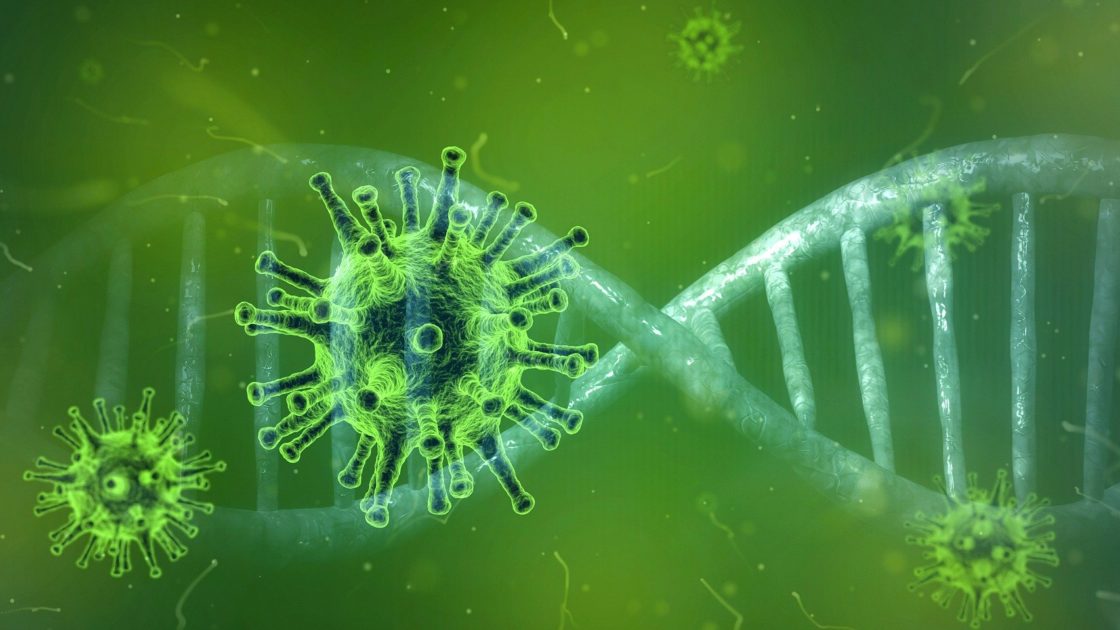BREAKING NEWS! COVID-19 Mutation: Swedish And Brazilian Researchers Detect SARS-CoV-2 Strain With Novel Major Mutation Of Spike Protein
Source: COVID-19 Mutation Aug 05, 2020 5 years, 5 months, 3 days, 19 hours, 10 minutes ago
COVID-19 Mutation: Genomic researchers from Karolinska Institutet-Sweden and the Federal University of Santa Catarina-Brazil have identified a novel mutation in a strain of severe acute respiratory syndrome coronavirus 2 (SARS-CoV-2) obtained from a patient in Stockholm, Sweden, in late April.

The research findings are published on a preprint server and are currently undergoing peer review.
https://www.biorxiv.org/content/10.1101/2020.08.03.233866v1
Dr Tatiany Soratto, a Professor from the department of Cell and Molecular Biology -Karolinska Institutet says it is possible the unknown mutation could affect the ability of the virus to bind to host cells or even affect disease severity and progression.
The novel mutation is located at the surface of the S1 subunit of the SARS-CoV-2 spike protein, the main surface structure the virus uses to gain entry to host cells. The S1 subunit contains the binding domain for the host cell membrane receptor angiotensin-converting enzyme 2 (ACE2).
The research also found that of four near-complete genomes assembled from infected patients, three belonged to one of the genetic groups that the Public Health Agency of Sweden had previously reported as having declined in prevalence by late April.
The study team warns that further investigation is needed to ensure that the spread of different SARS-CoV-2 strains is properly characterized.
It was reported that on 26th April, Dr Soratto and the team collected and tested nasopharyngeal swabs from 23 patients with suspected COVID-19 at the Karolinska University Hospital in Stockholm, Sweden.
Please Help To Donate To Sustain This Site And Other Research We Are Propelling. Thank You. https://www.thailandmedical.news/p/sponsorship
Of these patients, seventeen were confirmed as positive for SARS-CoV-2 by reverse transcriptase-polymerase chain reaction (RT-PCR) testing. After extracting viral RNA and synthesizing complementary DNA, libraries with 350-base pair (bp) fragments were generated and prepared for shotgun sequencing.
Upon removing low-quality sequencers and adapters and the human genome reference, the researchers mapped the remaining reads to the complete genome of SARS-CoV-2 Whuan-Hu-1, as accessed in GenBank.
When mapping was completed, the Genome Detective Virus Tool was used to assemble the reads with the GenBank SARS-CoV-2 genome used as a reference, and single nucleotide variants were assigned to each genome.
The study team were able to assemble four near-complete genomes that covered 99.7 to 99.8% of the GenBank reference genome and all of the coding region.
When compared with the reference genome, the four assembled genomes each had between 9 and 14 nucleotide variants.
The study team reports that all four genomes had mutations in the noncoding position 241 C (cytosine) t
o T (thymine) and three mutations in coding regions, which were two C to T at 3037bp and 14408bp, and one A (adenine) to G (guanine) at 23403bp.
However, in one of the genomes, a variant was found at 23463bp that was not found in any other GenBank SARS-CoV-2 genome. The mutation changes an arginine residue to a histidine residue at position 364 in the S1 subunit of the viral spike protein.
The genomic researchers say this variant in the spike protein could have destabilizing effects.
Dr Soratto told Thailand Medical News, “The variant is located at the surface of the S1 subunit, and could possibly affect the attachment of the virion to the cell, even though it does not change the receptor-binding domain itself.”
Upon comparing the four SARS-CoV-2 genomes obtained from patients in Stockholm with those detected globally, the researchers found that they belonged to the genetic strains 20C/B.1/G and 20B/B.1.1/GR.
The Swedish Public Health Agency had previously reported these genetic groups as two of the three main strains found in Sweden.
But, three of the genomes are from group B.1/G, which was also reported by the Public Health Agency of Sweden to have declined in prevalence by late April, say Dr Soratto and team.
He added, “This lineage has spread to more than 20 countries in Europe, the Americas, Asia, and Australia and corresponds to the Italian outbreak.”
The researchers warned, “More investigation is needed in order to ensure that the spread of different types of SARS-CoV-2 is fully characterized.”
The study team along with other global researchers is now studying the mutated strain and tracing other lineages or strains or cases linked to it while also studying its binding capabilities and implications in disease progression as well as in antibody, vaccine and drug research.
It should be noted that the virus undergoes numerous minor mutations as they spread from one host to another as such there are hundreds of various strains. However, when a significant change is noted on its RNA, the mutation is considered major and warrants further studies.
Thailand Medical News will be reporting on developments of this research.
For more about
COVID-19 Mutation, keep on logging to Thailand Medical News.
Please Help To Donate To Sustain This Site And Other Research We Are Propelling. Thank You. https://www.thailandmedical.news/p/sponsorship
